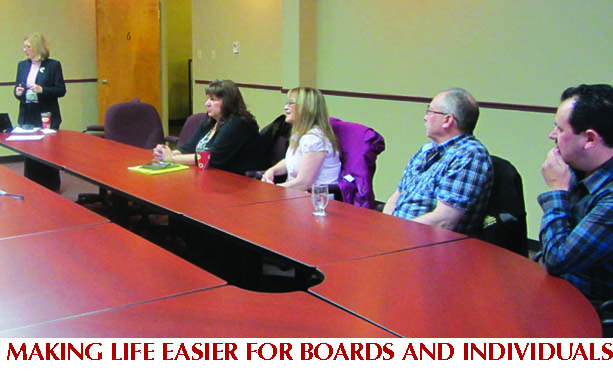 Does It Matter if Your Board Functions Well?
Does It Matter if Your Board Functions Well?
It can be argued that how a board functions does not really matter because boards do not make any difference to organizations. If the board did not exist, no one would notice. If this is indeed true, then how the board functions is really irrelevant and hardly worth questioning.
The board is vital because it plays a different role from management. This article is designed to determining if a board is functioning well.
Governance = Team
If a board is going to leave a positive legacy, it is essential that it operate as a team. This leads to the question, “How does one distinguish a group from a team?” There are defining characteristics which are worth reviewing.
Big picture
A team is aware of the big picture and how each role supports the other roles to accomplish the mandate of the board. In a group, the members focus on their own role and may or may not be concerned about the impact of their role on others.
Outcomes
A team agrees upon outcomes and strives to achieve those for some common good. Members of a group focus on their own roles and can easily move their focus from the agreed upon goals and are more apt to put their own agendas first.
Diversity
A team values diversity and sees conflict as normal. Members of a group are more concerned about their own well-being and look to see who agrees with them and who does not. As a result, members spend time determining who will agree with them and who may not prior to bring an issue forward.
Philosophy
Members of a group are apt to be concerned mainly with their own feelings of acceptance and power. They are more likely to finger point and blame others. A team is concerned about the ego-safety of each member and focus on issues only.
One Voice
Members of a group answer questions from non-board members differenly than members who view themselves as members of a team.
Open
A team is open. It wants to know what stakeholders think. A group may feel threatened by stakeholders and speak in terms of “them.”
Risks
A group is more likely to think they know what is best and move forward reacting to negativity after the fact. A team is determined to ask the CEO/Executive Director to outline risks from an organizational perspective while it looks externally to review the short- and long-term ramifications of potential decisions for key stakeholders.
Accountability
A group can focus on making itself look good. A team is interested in information to determine what it has accomplished and how it can move forward proactively.
A team acknowledges when it missed its desired outcomes and works diligently to self-correct to ensure these outcomes are achieved within a new timeline. It is not defensive. It reports facts as well as good-news stories and anecdotal evidence.
Where is Your Board
If you read this article and know that your board meets the characteristics of a team. Congratulations! You are well on the way to making a difference for your organization.


